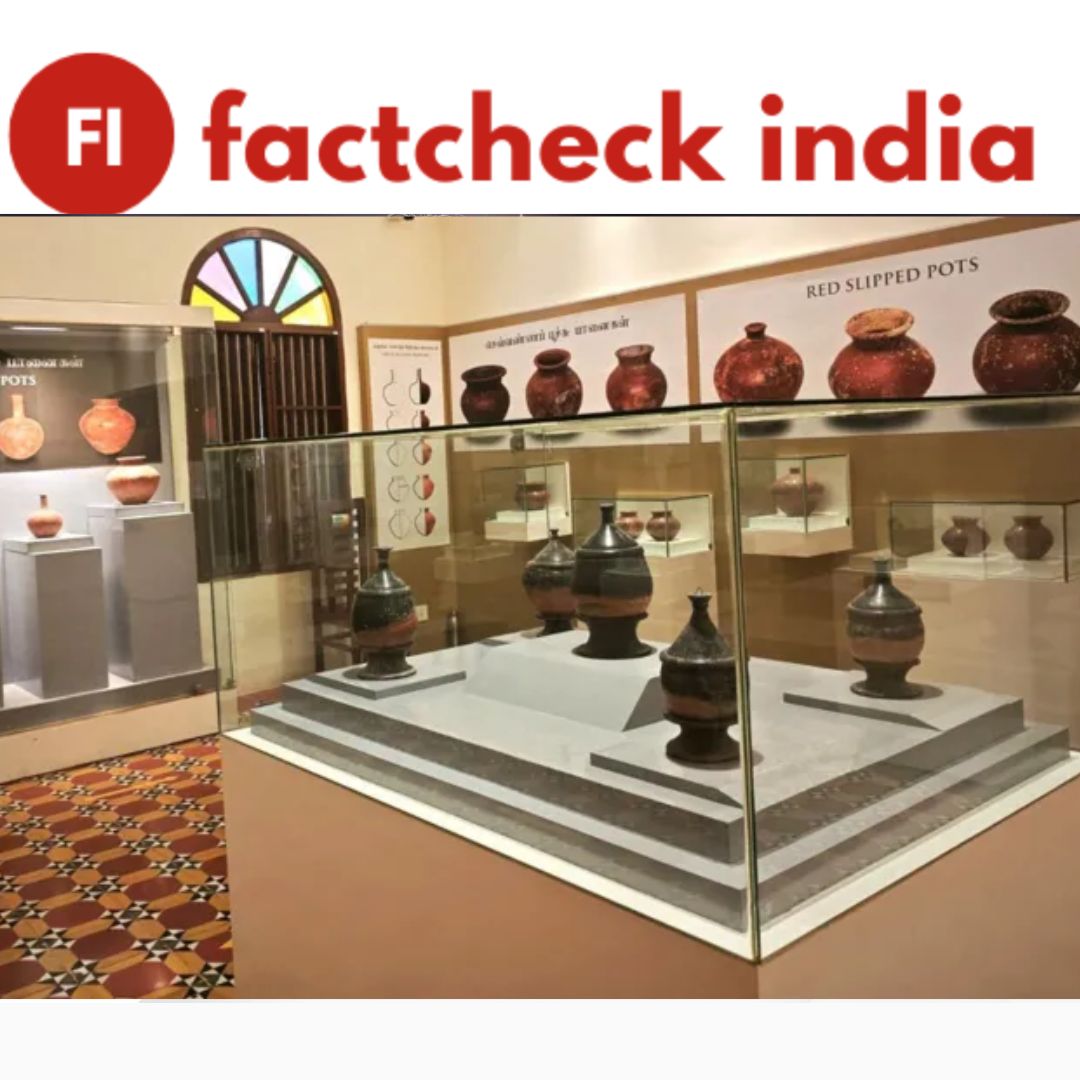Claim: Findings at the Keeladi excavation site in Tamil Nadu prove that southern India had an advanced urban civilisation older than or contemporary with the north.
What’s Happening?
Keeladi, a village near Madurai in Tamil Nadu, has become the center of a heated political and historical debate after archaeologists unearthed artefacts believed to be 2,000–2,500 years old, dating back to around 580 BCE. Excavations since 2014 have revealed over 15,000 artefacts, including brick structures, water systems, pottery, beads, coins, and burial urns and suggesting that Keeladi was a literate, urban settlement.
Why It Matters?
- Keeladi challenges the long-held belief that urbanisation and literacy in ancient India were largely a northern phenomenon.
- Tamil Nadu archaeologists claim Tamil Brahmi script found here predates Ashokan Brahmi by centuries.
- Some graffiti on artefacts resembles Indus Valley symbols, raising questions about cultural links with the same.
What is The Political Angle?
- Tamil Nadu leaders accuse the BJP-led central government of suppressing findings that boost Tamil pride and Dravidian heritage.
- Archaeologist Amarnath Ramakrishnan, who initiated the digs, was transferred in 2017, triggering allegations of bias.
- The ASI (Archaeological Survey of India) is still “reviewing” his report, sparking further controversy.
What Experts Say
- Supporters argue that Keeladi shows an independent southern urban civilisation, contemporary with or older than the Gangetic plains.
- Skeptics caution that more evidence is needed to confirm the script’s antiquity and links with the Indus Valley.
What Factcheck India Thinks?
Keeladi adds a new chapter to India’s history, challenging narratives that civilisation and literacy spread only from north to south. It highlights how politics, identity, and history intersect in modern India.

